Host Francesca Rheannon talks with two-time Pulitzer Prize-winning journalist Anthony Lewis about his pithy and thought-provoking “biography” of the First Amendment, FREEDOM FOR THE THOUGHT WE HATE.
Yearly Archives: 2008
Louise Erdrich’s THE PLAGUE OF DOVES and more…
Podcast: Play in new window | Download
Subscribe: Apple Podcasts | RSS
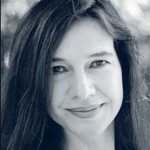
Louise Erdrich says she worked on her latest work of fiction, [amazon-product text=”A PLAGUE OF DOVES” type=”text”]0060515139[/amazon-product] for nineteen years before publication. It was worth the wait. This week Francesca talks with Louise Erdrich and journalist Jeremy Scahill about his book, [amazon-product text=”BLACKWATER: The Rise of the Worlds Most Powerful Mercenary Army” type=”text”]156858394X[/amazon-product]. Continue reading
THE HAKAWATI and SO WRONG FOR SO LONG
Podcast: Play in new window | Download
Subscribe: Apple Podcasts | RSS
[amazon-product align=”right”]0307386279[/amazon-product]
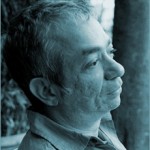
We talk with Lebanese writer Rabih Alameddine about his new novel, [amazon-product text=”THE HAKAWATI” type=”text”]0307386279[/amazon-product]. Framed around the story of a family in modern-day Lebanon, the novel weaves fiction, fable and epic into a wonderful tapestry.
And journalist and editor Greg Mitchell tells us about how the press and the punditocracy failed the public on Iraq. His book is [amazon-product text=”SO WRONG FOR SO LONG: How the Press, the Pundits and the President Failed on Iraq” type=”text”]1402756577[/amazon-product].
The audio for this episode is available upon request for a donation of $4.99 to Writers Voice. Contact writersvoice [at] wmua.org.
OLIVE KITTREDGE and THE END OF THE JEWS
Podcast: Play in new window | Download
Subscribe: Apple Podcasts | RSS
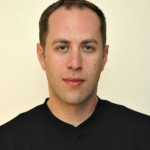

Francesca interviews novelist Elizabeth Strout about her Pulitzer Prize winning book, OLIVE KITTERIDGE, which uses a collection of short stories to create a novel about the inhabitants of a coastal town in Maine. And Adam Mansbach talks about his new novel, THE END OF JEWS.
Continue reading
Web Extra: Elizabeth Strout reads from OLIVE KITTREDGE
Podcast: Play in new window | Download
Subscribe: Apple Podcasts | RSS

Elizabeth Strout reads from her latest novel, [amazon-product text=”OLIVE KITTERIDGE” type=”text”]0812971833[/amazon-product].
We talked with novelist Elizabeth Strout about her new book, OLIVE KITTERIDGE. She uses a collection of short stories to create a novel about the inhabitants of a coastal town in Maine.
Rising Powers, Shrinking Planet. Bush’s Law.
The news today about a possible war impending between Georgia and Russia is prefigured in our first interview: host Francesca Rheannon talks with energy security expert Michael Klare about the dangerous new global order of energy politics — winners and losers, flashpoints of conflict, and what it means for democracy and the environment. His book is RISING POWERS, SHRINKING PLANET: The New Geopolitics of Energy. In our conversation Klare notes that Georgia could the the flashpoint not only of war between Russia and Georgia–but between Russia and the United States.
Also, New York Times reporter Eric Lichtblau broke the story on warrantless domestic spying. His book is BUSH’S LAW: The Remaking of American Justice.
Nicholson Baker’s HUMAN SMOKE and more…
Podcast: Play in new window | Download
Subscribe: Apple Podcasts | RSS
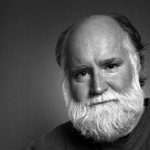
Host Francesca Rheannon talks with Nicholson Baker about his acclaimed new book, [amazon-product text=”HUMAN SMOKE: The Beginnings of World War II; The End of Civilization” type=”text”]1416567844[/amazon-product].
[amazon-product align=”right”]1416567844[/amazon-product]
In a departure from his usual genre, fiction, Baker turns his eye for telling detail to an examination of the cavalier disregard for the human consequences of war by leaders on all sides of the conflict. We hear about how Churchill’s warmongering and Roosevelt’s anti-Semitism exacerbated the war’s civilian toll. We also hear of the courage of a few who dared to speak against the headlong rush to battle.
Also, we air an excerpt from our 2006 interview with Pulitzer Prize-winning poet, Maxine Kumin.
Mark Eleveld, The Spoken Word Revolution Redux
Podcast: Play in new window | Download
Subscribe: Apple Podcasts | RSS
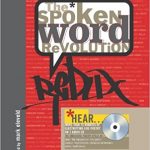 Hip-hop, poetry slams, and more: it’s the SPOKEN WORD REVOLUTION REDUX. We talk with editor Mark Eleveld about poetry in performance and hear cuts off the CD accompanying the book.
Hip-hop, poetry slams, and more: it’s the SPOKEN WORD REVOLUTION REDUX. We talk with editor Mark Eleveld about poetry in performance and hear cuts off the CD accompanying the book.
Connie Hale of the Nieman Center
Podcast: Play in new window | Download
Subscribe: Apple Podcasts | RSS
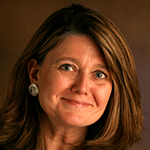
In March of 2008, Writer’s Voice host went to the Nieman Foundation’s Conference on Narrative Journalism. In this show segment, we talk with Nieman narrative program director Connie Hale about what “narrative journalism” is all about.
AGE OF AMERICAN UNREASON and AGAINST THE MACHINE
Our theme is cultural decline and what to do about it. We talk with cultural critic Susan Jacoby about THE AGE OF AMERICAN UNREASON. And former New Republic editor and author Lee Siegel talks about the unintended consequences of the digital age. His book is AGAINST THE MACHINE: Being Human in the Age of the Electronic Mob. Continue reading
Philip Fradkin and Rutherford Platt
We talk with biographer Philip Fradkin about the life of Wallace Stegner, writer and environmentalist extraordinaire. His book is WALLACE STEGNER AND THE AMERICAN WEST.
You can read a New York Times review of Fradkin’s book (which says a lot more about Stegner than about the biography) here. And for the first chapter, go here.
Also, urban geographer Rutherford Platt tells us about how to make cities that are sustainable and a pleasure to live in. Editor of the THE HUMANE METROPOLIS, he’s the founder of the Ecological Cities
Project at the University of Massachusetts, Amherst.
Poetry Speaks Expanded and Beyond Genocide
April is Poetry Month and we enter it by talking with editor Rebekah Presson Mosby about a new edition of a much-hailed anthology from Sourcebooks Press. It’s called POETRY SPEAKS EXPANDED.
Also, artist Amy Fagin and filmmaker David Edwards who will be showing their work at the Pioneer Valley Jewish Film Festival on Tuesday, April 1.
Fagin’s illuminated book project, BEYOND GENOCIDE, honors peoples who have been genocide’s victims, past and present. Edwards’ film, Kabul Transit, gives a sensitive portrait of Afghanistan under occupation.
Greg Palast on Spitzer and the Bank Bailout; also, Field Report on Narrative Journalism
Podcast: Play in new window | Download
Subscribe: Apple Podcasts | RSS
Greg Palast, investigative reporter for the BBC, tells us why he thinks the Eliot Spitzer scandal broke when it did — and what federal prosecutors were trying to keep hidden from the public about the bank bailout by taking Spitzer down.
Here’s a link to a Nation article that tells the story.
Then we go to the Nieman Foundation’s Conference on Narrative Journalism. We talk with broadcast and print journalist John Hockenberry about interactive media, BU journalism department chair Louis Ureneck about memoir, and Nieman narrative program director Connie Hale about what “narrative journalism” is all about.
The Open-Focus Brain and Surviving Depression
Podcast: Play in new window | Download
Subscribe: Apple Podcasts | RSS
We talk with biofeedback pioneer Les Fehmi about how to focus the mind and improve productivity and mood. His book is THE OPEN FOCUS BRAIN: Harnessing the Power of Attention to Heal Mind and Body. The book comes with an instructional CD to put the method into practice.
Also, what are the societal roots of depression? How can we use community-building to overcome the disease? We hear from psychiatrist Bruce Levine about SURVIVING AMERICA’S DEPRESSION EPIDEMIC: How to Find Morale, Energy, and Community in a World Gone Crazy.
Eric Weitz’s WEIMAR GERMANY
Podcast: Play in new window | Download
Subscribe: Apple Podcasts | RSS
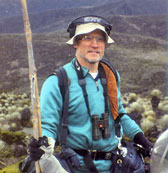
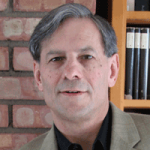
We talk with historian Eric Weitz about [amazon-product text=”WEIMAR GERMANY: Promise and Tragedy” type=”text”]0691140960[/amazon-product]. On the one side, there was Bauhaus, Expressionism, Magnus Hirschfeld and new freedom for gays and women, a vital and experimental theater–in short, an explosion of intellectual and artistic creativity. On the other: hyperinflation, economic depression, and bullies of the left and right rampaging in the streets, setting the stage for the Nazi seizure of power in 1933.
We explore both sides of Weimar Germany and what lessons it may hold for us today.
Also, a preview of Spring…we listen to robins and other birds with renowned bird biologist Donald Kroodsma, author of [amazon-product text=”The Singing Life of Birds: The Art and Science of Listening to Birdsong” type=”text”]0618840761[/amazon-product].
